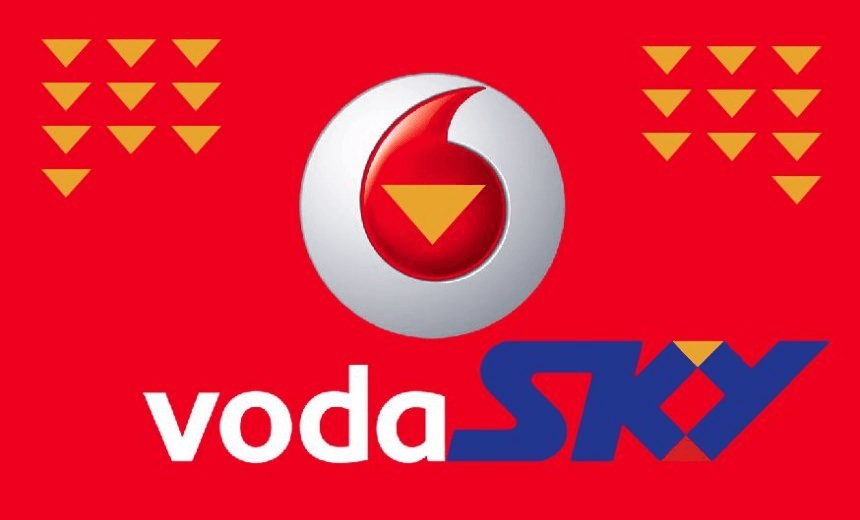A Vodafone-Sky merger works for companies waking up to new realites about content, distinctiveness and immediacy. Whether it’s good for consumers is another matter altogether, argues Paul Brislen.
There are two major trends in the telecommunications market that directly relate to the Vodafone-Sky-TV merger.
The first is the commoditisation of everything. If you can reduce it to bits and fire it out to the world at large over the internet the value of your product just shrank to roughly one millionth of what it was yesterday.
It started with text messages and includes photos, videos and voice calls but also art, books, music, television, movies, journalism, shopping, dating, games, software and data itself. As it becomes more valuable to us as an item, it becomes worth less to us in terms of price.
The second trend is the move to instant, real-time access to everything.
Forget waiting for your favourite show to come out next week, watch it now! Don’t worry about “taping” the game, follow it live on your tablet! Call when you’re away from the house, make a video and upload it to YouTube (no, wait, that’s old-fashioned too – make a video and have it stream live on the internet immediately via Periscope). Don’t wait to get to the office to do that paperwork, have it with you at all times – at home, at the movies, at sports events, at kids’ birthday parties …
Immediacy is the driving force but until now it’s mainly been contained on the content side of the equation. What the telcos are starting to realise is that it will soon contaminate even the operational side of their business and the impact of that is going to be really rather entertaining to watch. From a safe distance.
What will happen? You’ll wake up in the morning and your phone will tell you “Today, you’re a Vodafone customer because they’ve got a deal on international calling and your calendar says you’ve got to make that call to the London office – I expect this will save you 23% of the cost. Tomorrow you’ll be a Spark customer because of the data bundle, which you’ll need as you have meetings out of the office all day.” Or something like that. It’ll probably not tell you at all, you’ll just be moved between networks as required, based on parameters you set. You can even keep your phone number, if anyone really cares any more.
For telcos this is a nightmare. It’s called the “dumb pipe” scenario and means that because all telco services are essentially alike (it’s just bits delivered over the network) then customers will start to treat them as essentially alike, and vote purely on price, or network coverage, or whatever factors drive customer behaviour.
That’s why telcos the world over are looking for a way to differentiate themselves in the market. It’s why BT spent £1 billion to buy the rights to the UK’s Premier League soccer a couple of years ago – because in order to watch it immediately on any device of your choosing you had to be with BT. As a customer acquisition plan it worked extremely well – BT added one million customers that year. But that’s £1,000 per customer. At an average price of, what, £20 a month, you’ve got to keep that customer happy for over four years just to recoup that one cost. Woe betide the customer actually phone your call centre – that’s your profit gone for a decade.
And it’s why Sky and Vodafone are looking at joining forces. Sky clearly needs help transitioning from a pay TV platform and Vodafone needs help standing out from the crowd.
I suspect this is the way of the future for telcos but not necessarily for the customers.
I don’t want to have to buy internet access from BT in order to watch the football. I don’t want to have to buy my internet access from any particular company in order to get access to its content – that’s called cable TV and it fails the customer repeatedly.
What happens if Sky/Vodafone (all right, Skodafone) buys the rights to That TV Series I desperately want to watch but Spark has the rights to Sportsball and I’m eager to see that as well? Will I have to buy two services from two telcos in order to access the content?
This is the net neutrality debate at its finest. Content and services shouldn’t be tied to one provider or the other. It’s like buying a Ford and finding Ford’s signed some kind of deal with Caltex for fuel and Dunlop for tyres and you’re unable to use essentially the same products from another provider. It is to be avoided at all costs because it limits customer choice.
These kinds of deals look great for the companies involved but lousy for the customers and surely if your customer isn’t happy with the deal it’s a bad idea all round. Surely?
Paul Brislen used to work for Vodafone but hasn’t done so since 2011 so can we please all just put that behind us now? OK?




